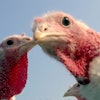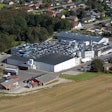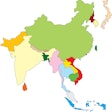Science and ethics experts took part in a first-of-its-kind conference on the role of gene editing. CRISPRcon – a summit named for the genome editing technique creating Clustered Regularly Interspaced Short Palindromic Repeats (CRISPR) – brought together a diverse set of panelists to discuss this emerging technology.
CRISPR technology allows for precise changes to be made to the DNA of living cells, which holds the potential to eradicate diseases, transform agriculture and enable massive leaps forward in environmental and life science. Through a series of keynote speakers, panels and interactive discussions, CRISPRcon offered a single forum for those with a stake in gene editing to share ideas, ask and answer questions and explore the path forward.
Included on the panel of speakers at the two-day event was Thomas Titus, a pig farmer from Illinois. Titus was one of only two farmers who presented among the scientific experts, physicians, patients, environmentalists, consumers and community leaders to explore a wide range of potential applications for gene editing. The future of gene editing spans many aspects of life – from human and animal health to agriculture and conservation.
“Gene editing will have great impact on the future of farming, and especially on livestock production,” Titus said. “Although in its very early stages of development and acceptance, gene editing could ultimately be used to make pigs resistant to diseases, thereby improving food safety, animal welfare and the environmental impact of agriculture.”
Titus, who raises pigs and also grows grain on his Illinois farm, was part of a panel discussing where CRISPR technology could take society by 2050. His appearance was supported by the Pork Checkoff and National Pork Producers Council. Other panelists included representatives from the Center for Genetics and Society, the Institute for the Future, PICO National Network and The Breakthrough Institute.
“Today’s consumer is educated, and asking questions about where their food comes from and how it is raised,” Titus said. “That’s why I welcome every chance I get to talk about today’s pork production. I appreciated the opportunity to once again open my barn doors to share how I raise pigs with these key influencers in food production.”
Other topics addressed during the conference included societal perception and acceptance of CRISPR application in surgery, human health and food production and conservation.


















